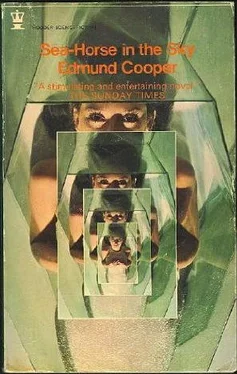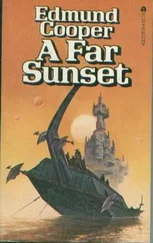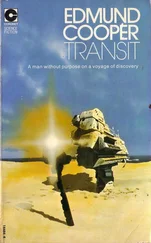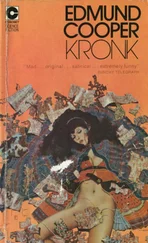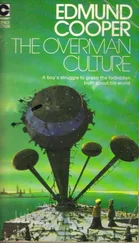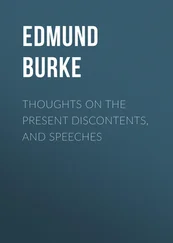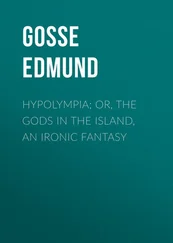He told Grahame of his investigation when they met for an early breakfast. A search revealed that there were similar lenses in every room and even in the corridors. The fact disturbed Grahame a great deal; and he asked Norstedt, for the time being, to say nothing to the other members of the group. Their situation was bad enough already without adding to it the burden of total loss of privacy.
Tore Norstedt wanted to tear out some of the equipment and examine it and then perhaps destroy it; but Grahame restrained him. His political acumen provided what seemed like a sensible solution: When everybody had left their rooms, Norstedt would go round and stick small patches of paper over the lenses.
But elsewhere in the hotel, the lenses were to remain untouched.
Thus, reasoned Grahame, the watchers should be able to infer that their specimens, while not objecting in principle to observation, felt that they were entitled to some degree of privacy.
Immediately after breakfast, he organized a more thorough investigation of their surroundings than had been possible or even desirable on the day of their arrival. This time the exploration group was composed solely of men, under the command of John Howard, the British teacher, who had already proved himself to be an observant and level-headed person.
Their instructions were simple. They were to march due north for one hour—north having been determined from the fact that the direction in which the sun rose was designated east—and then turn round and come back again. If they discovered any high ground, they were to use it to obtain a general view. But they were to avoid, if possible, all contact with any indigenous animal life; and, short of being attacked and having to defend themselves, they were to do nothing that could possibly be interpreted as hostile action.
The question of self-defence was a thorny one. Grahame was loath to send men off on a possibly hazardous expedition without any means of protection. A search of the still unattended supermarket across the street revealed two interesting facts. The first was that the supplies that had been removed from it the day before had now been replenished. And the other was that it contained a small hardware section—which had apparently been overlooked the day before.
From the hardware section, the four explorers took knives and small hatchets. As the day had already grown warm, and the sun shone down through a cloudless sky, they had stripped down to light clothing. With shirt sleeves foiled up, knives stuck in their belts, and hatchets in their hands, they looked a formidable bunch of brigands.
Everyone turned out of the hotel to see them off on their journey into the interior. As they walked down the road that led to nowhere, brandishing their makeshift weapons and trying not to appear too self-conscious, they became most acutely aware of the absurdity of the situation. Even Grahame, who was beginning to feel that he had all the cares in this alien world upon his shoulders, could not help laughing.
The expedition looked vaguely like a scene from the rehearsal of some comic opera.
They returned in exactly two hours and ten minutes.
All of them were safe. None of them had been in any kind of jeopardy.
But their report did nothing at all to alleviate the general mood of acute anxiety and insecurity.
First of all, John Howard reported on what all of them agreed they had seen. He estimated that they had travelled about eight kilometres over a plain that, apart from strange shrubs, small flowers, extremely large fern-like plants and patches of surprisingly tough and very tall grasses, was fairly featureless. They had discovered a river and, in the middle distance, they had seen a range of moderately high hills. But the party as a whole had not had any direct encounter with any animal life of any kind.
However, there were two minority reports.
One was by Paul Redman, the American literary agent. He said that, as they had threaded their way between several clumps of grasses that were more than half as high again as an average man’s height, he had stopped to wipe the sweat from Ms forehead. And he had gazed up at the sky.
Momentarily, he claimed, he had witnessed the passing of a brilliant and dazzling group of winged creatures. They had what looked like long golden hair, he said, and tiny faces that seemed almost human.
And the only way he could adequately describe them was to say that they looked oddly like fairies.
The other report came from Gunnar Rudefors, the Swedish teacher.
The four men had travelled in single file, each man about half a dozen paces behind the one in front. Bearing in mind that they knew nothing at all of the country they were exploring, they had agreed that this was probably the safest way to move. As the lead position was obviously the most hazardous, each of them took turns at it.
Gunnar Rudefors took his turn when they were nearing their time limit and would shortly have to turn back. Being eager to make the most of the expedition, he had walked quickly and had pressed further ahead of the others than he should have done.
Thus it was that he emerged from a long patch of tall ferns to catch a glimpse of what he insisted was a medieval knight in bright and curiously designed armour about twenty paces ahead.
Neither ridicule nor cross-questioning would shake Gunnar Rudefors from his description.
The knight wore something like a visor, so that his face was mostly hidden.
He also carried a weapon that might have been a kind of lance or sword.
He also sat astride an animal with large branched antlers, smaller than a horse but larger than a deer.
He and Gunnar Rudefors confronted each other for a long moment. Then the knight uttered a muffled word that sounded something like ‘Avaunt!’ He swung his steed round by simply pulling on one of the antlers, and cantered off into a group of trees.
By the time the rest caught up with the spellbound Swede, the knight had disappeared. John Howard, second in file, admitted that he heard something that might have been hoof-beats and a cry that could easily have come from Rudefors himself. But he saw nothing.
When Grahame had heard the account of the exploration jaunt, he realized that he needed a drink.
A pretty large whisky. Very badly.
He was not the only one.
although no contact was established with the persons or creatures responsible for the abduction of sixteen passengers on the Stockholm-London flight, several interesting things happened during the next few days—two of them tragic. The first tragedy was the suicide of Marina Jessop, British student, age twenty.
It took place on the evening of the day on which Paul Redman saw fairies and Gunnar Rudefors saw a medieval knight.
That evening, after dinner, Russell Grahame, M.P., officer commanding the extraterrestrial legion, reviewed the course of events and gave his interim interpretation. He tried to keep his speech—and it was a speech—as formal and as matter-of-fact as possible, bearing in mind the state of high emotional tension that already existed and would doubtless continue to exist until further notice.
“Ladies and gentlemen,” he began, looking sadly at his small and strained audience, “I have been thinking a lot—as you all have—about what has happened to us. And, despite the nightmarish absurdity of our plight and the tantalizing lack of information, I feel that for my own peace of mind (joke!) I must try to make some sense out of it. No doubt my interpretation is entirely wrong; but, for what it is worth, I give it to you. If, after I have spoken, anyone would care to submit a more valid explanation, I would be delighted to hear it. Meanwhile, here goes.”
He paused.
Читать дальше
